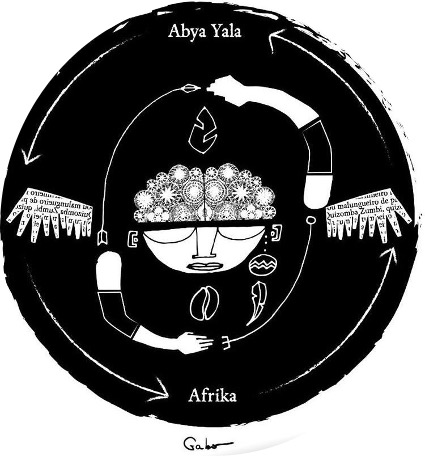O SIGNIFICADO DA COMUNIDADE-ORUM-AIYÉ OU COMUNIDADE-UNIVERSO-NATUREZA NA FILOSOFIA AFRICANA DO NTU-AXÉ
Keywords:
Filosofia africana; Ubuntu; Axé; Universo; Natureza.Abstract
The debate on the rights of Nature has been gaining ground lately. Latin American thinkers have guided the debate from the ancestral paradigm of Pachamama as a way to overcome the planetary crisis established by the dominant forces of capitalism. African intellectuals, on the other hand, have been betting on their ancestral philosophies as a way to bring their contribution. Situating within the scope of Ntu's African Philosophy, this article aims to understand the origin, the place of the Community-Universe-Nature in African ontology and cosmogenesis. To this end, it analyzes the Egyptian, Yoruban, Adja and Bakongo myths and the African philosophical texts that focus on the Universe, the World, Nature or Earth. The main argument made is that the African people knew about Astronomy, Astrology, Astrobiology and Philosophy. In this context, the concept of Universe, Word, Nature or Earth must be understood in their native languages and idioms: Noun, Aton, Ra, Olodumare, Iranião-Oquê, Orun-Aiyé, Nzambi-Kalunga. The texts that were analyzed suggest that the Yoruban terms Orum and Aiyé make it possible to define unambiguously what the author calls Community-Universe-Nature, and therefore argues that it would be better to call it Community-Orum-Aiyé.
Downloads
References
DIOP, Cheikh Anta. Civilisation ou barbárie: Anthropologie sans complaissance. Paris: Présence Africaine, 1981.
FAÏK-NZUJI, Clémentine M. La puissance du sacré: L´homme, la nature et l´art em Afrique noire. Bruxelles: Maisonneuve & Larose, 1993.
_____. Arts africains: signes et symboles. Paris/Bruxelles: DeBoeck Université, 2000.
FU-KIAU, Kia Bunseki. The african book without title. Cambridge: s.e, 1980.
MALOMALO, Bas´Ilele. Epistemologia do ntu: ubuntu, bisoidade, macumba, batuque e “x” africana. In: Souza, Elio Ferreira de et al (Org.). Cultura e história afrodescendente. Teresina: FUESPI, 2018a, p. 561-574.
NTUMBA, Tshamalenga M. Le réel comme procès multiforme : pour une philosophie du Nous processuel, englobant et plural. Paris: Edilivre-Aparis, 2014.
OBENGA, Théophile. La philosophie africaine de la période pharaonique, 2780-330 avant notre ère. Paris: L´Harmattan, 1990.
Downloads
Published
How to Cite
Issue
Section
License
Copyright (c) 2021 Communitas

This work is licensed under a Creative Commons Attribution-NonCommercial-ShareAlike 4.0 International License.
The Copyright for articles published in this magazine belongs to the author, preserving the rights of first publication for the Communitas Magazine. Because they appear in this publicly accessible journal, the articles are free to use, with their own attributions, in educational and non-commercial applications.
























